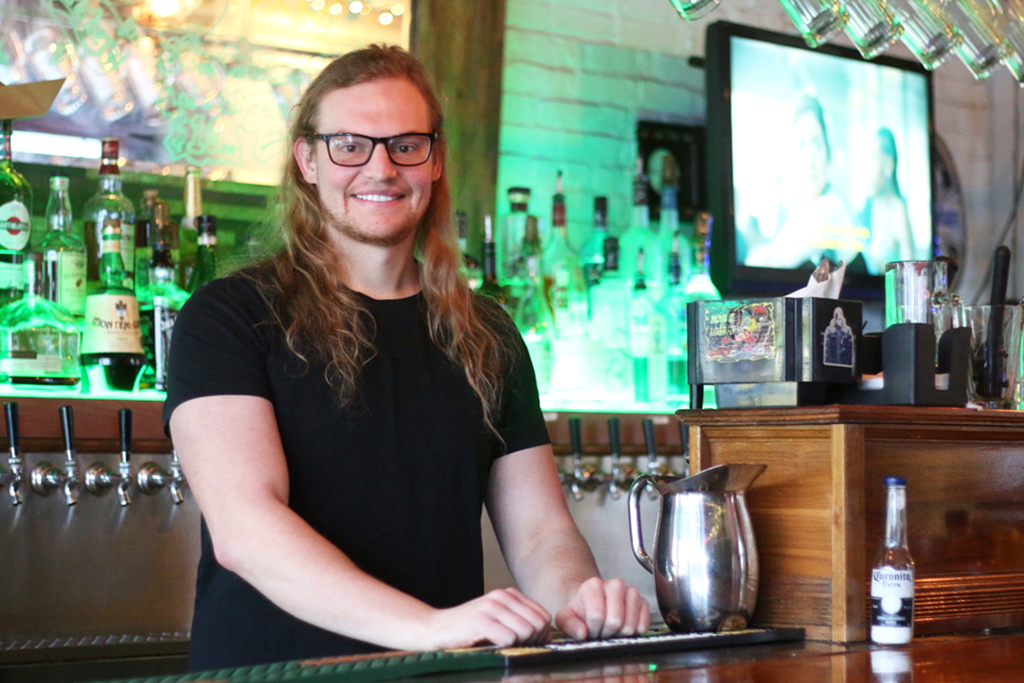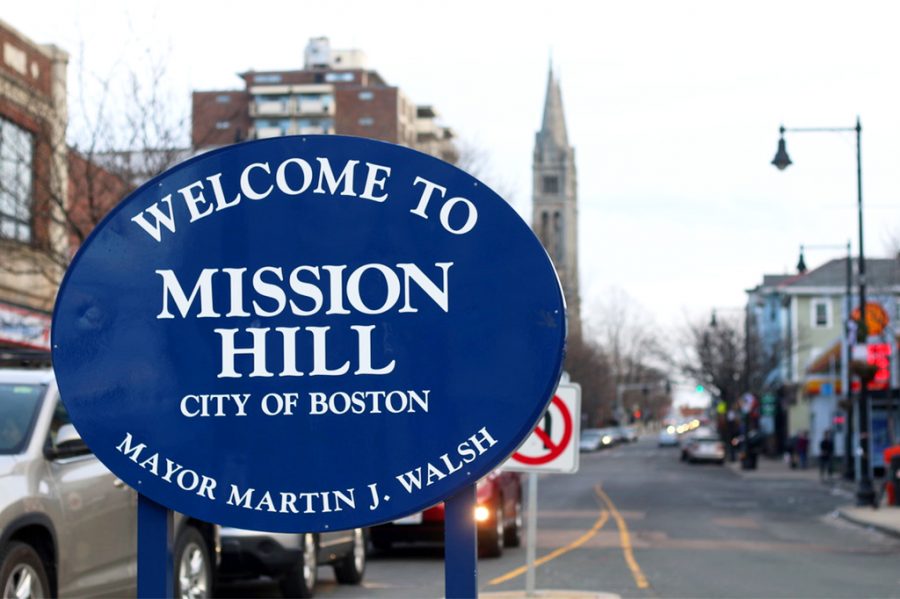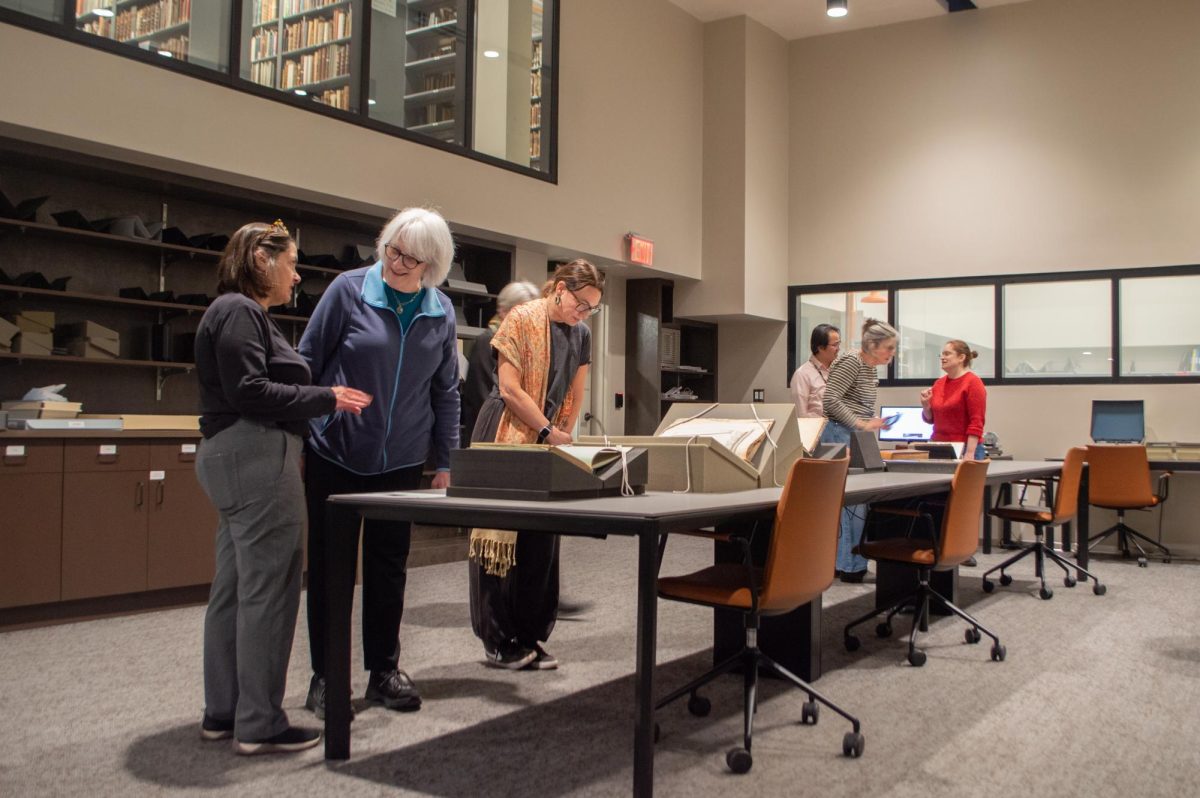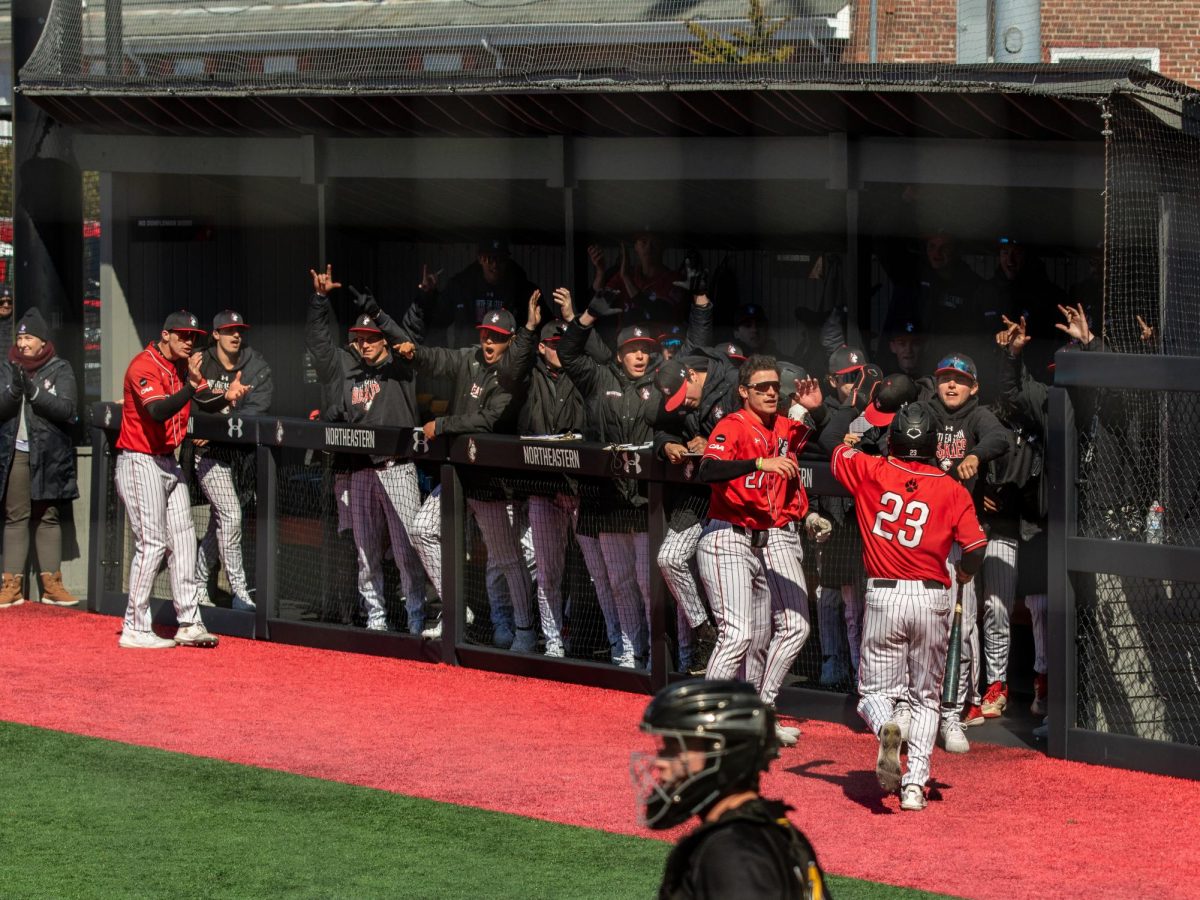Students have transformed Mission Hill, and some businesses aren’t complaining
Businesses on Mission Hill have faced a series of changes, including rising rent prices and an influx of students.
January 30, 2019
The general sentiment from many Mission Hill business owners toward students is one that understands the mutually beneficial relationship — keep them coming.
“Any business is good business for anyone in this area,” said James Hall, the general manager of Penguin Pizza on Huntington Avenue. It was barely past 5:00 p.m. on a Sunday, and more than half the stools at the bar beside him were filled.
While the restaurant Hall manages has been serving up beer and pizza since 2004, Hall himself is a relative newcomer to the neighborhood, having moved to Boston two and a half years ago. His brief, yet growing relationship with Mission Hill also serves as a fitting reflection of one of the area’s predominant populations — students.
Over a third of Mission Hill’s residents fall into the 18–24-year-old age range, according to a 2017 report from the Boston Planning and Development Agency. One only needs to walk a couple hundred yards to the nearby undergraduate and graduate institutions to understand why. Boston is well-known for its influx of students, with at least 136,000 university students moving in this past September, as reported by the Boston Globe.
That concentration becomes more apparent in a neighborhood that occupies less than a square mile of the city. However, Hall doesn’t quite see this distinction in the patrons of Penguin Pizza, whom he describes as “all over the board.”
“We definitely don’t have a specific type — there’s no specific crowd that we have,” Hall said. “It’s just, you know, everybody who likes great pizza and great beer.”
He said business comes from not just schools but also the surrounding hospitals and medical institutions. Places like Brigham and Women’s Hospital, directly across the street from the restaurant, tend to put in large orders for catered events, compared to people who may be coming in for a personal pie or two.

James Hall, the general manager of Penguin Pizza on Huntington Avenue. “Any business is good business for anyone in this area,” he said.
But move away from the hustle and bustle of Brigham Circle down Tremont Street and students become the primary clientele.
Rakesh Soni affirmed this thought as a stream of customers came in and out of the compact Indian grocery he owns on Tremont Street. Between ringing up frozen kathi rolls and mint Juul pods, Soni, who has been running Punjab Mini Mart for 15 years, cites students as his biggest customer demographic.
While he gets a mix of people passing through the store, much like Hall, Soni sees undergraduate and graduate students the most. The area south of Huntington Avenue has historically been more residential, which helps explain the type of customers that shop at Punjab Mini Mart.
Though for some, changes in Mission Hill have made it unrecognizable, especially from the influx of businesses. Vatche Chamlian, a 39-year-old Northeastern alumni who graduated in 2002, recalls when the only businesses in Mission Hill were up by Huntington and Brigham Circle.
“The last time I was [in Mission Hill] was a week or two ago, and I was totally confused because it didn’t look like anything it looked like when I was there,” Chamlian said. He also described the neighborhood as a “do what you gotta do and get out of there place.”
However, through efforts such as a 2003 revitalization plan from the Mission Hill Main Streets organization and developments that brought new housing and storefronts, Mission Hill has taken on a multi-faceted identity that Hall calls an “awesome, miniature community.”
“It’s not just the students, it’s not just the hospital workers, it’s not just the grad students, it’s not just the businesses that take care of everybody,” Hall said. “It definitely has its own energy.”
But as with most neighborhoods that go through significant transformations, the concern of displacement and other harmful side effects arises. Boston Magazine touched upon this in a July 2018 article, writing, “Institutional advancement has meant the ravaging of residential areas, demolishing reasonably priced housing and sending residents out of the neighborhood in search of something more affordable.”
People like Hall and Soni aren’t untouched either. They both discussed rising rent and overall costs, but they attribute it to a city-wide problem, as opposed to a Mission Hill-specific one.
“It’s happening everywhere, prices are going up,” Soni said.
Hall agrees, saying that if there are people willing to pay these increasing prices, these rates will only continue to go up.
These rates are also associated with the demand of the neighborhood’s population. When the semester comes to a close and many college students head out of town for the summer, leaving only full-time residents, it might be assumed that business dwindles. But as it turns out, this student demographic isn’t necessary for those warmer months because business owners have noticed tourism naturally drives that traffic.
Both Hall and Soni said the population balances itself out with the changing seasons. While students are in the city during the winter months, the freezing cold discourages people from leaving their homes, and an influx of tourists in the spring and summer brings an increase in both population and foot traffic.
So when it comes to business, these times of the year even themselves out. This brings value to the different customer groups that pass through places like Penguin Pizza or Punjab Mini Mart, whether they’re students from the neighborhood or visitors from another country. Despite this flow of people that constantly brings new and old faces in and out, Soni and Hall both enthusiastically agree that there is a strong sense of community in Mission Hill.
“Everybody is friends with everybody. You have to be, you’re so closely connected,” Hall said. He was soon back behind the bar, serving up a beer and bantering with a patron — just one of the many members of that community.








